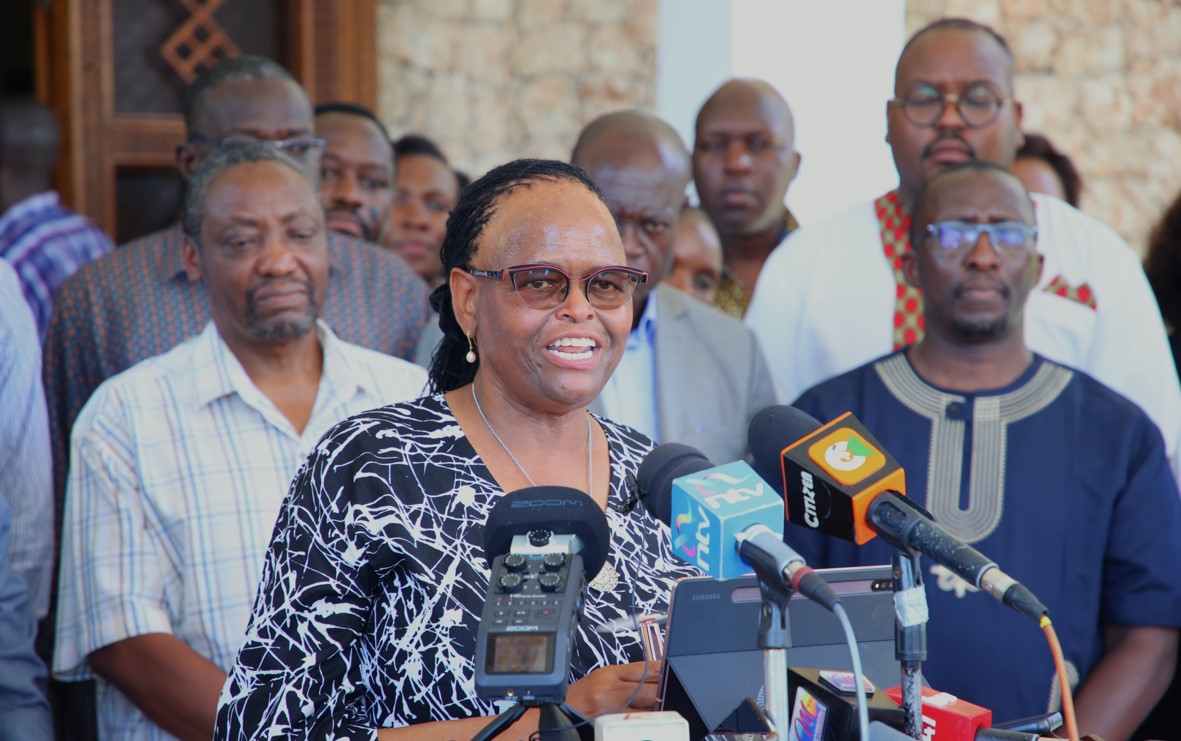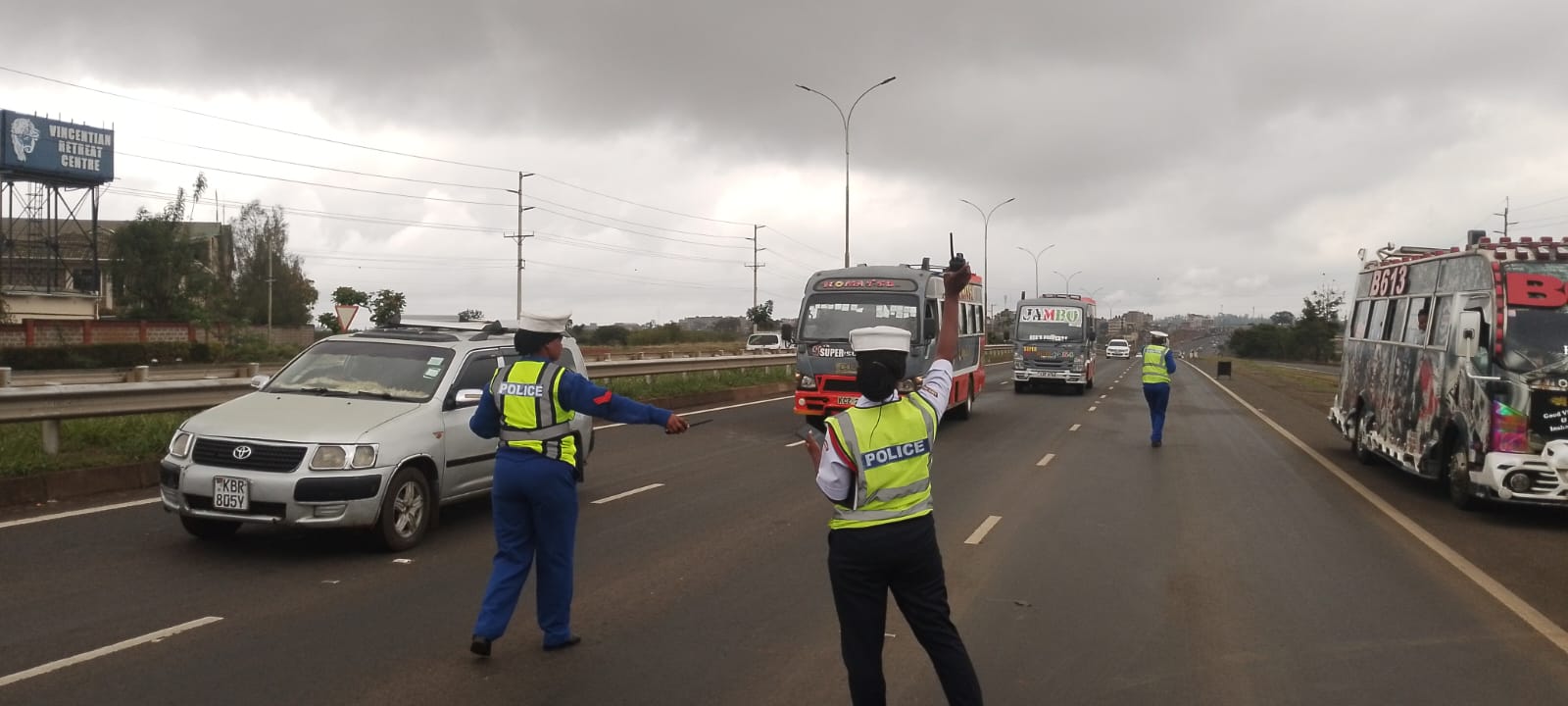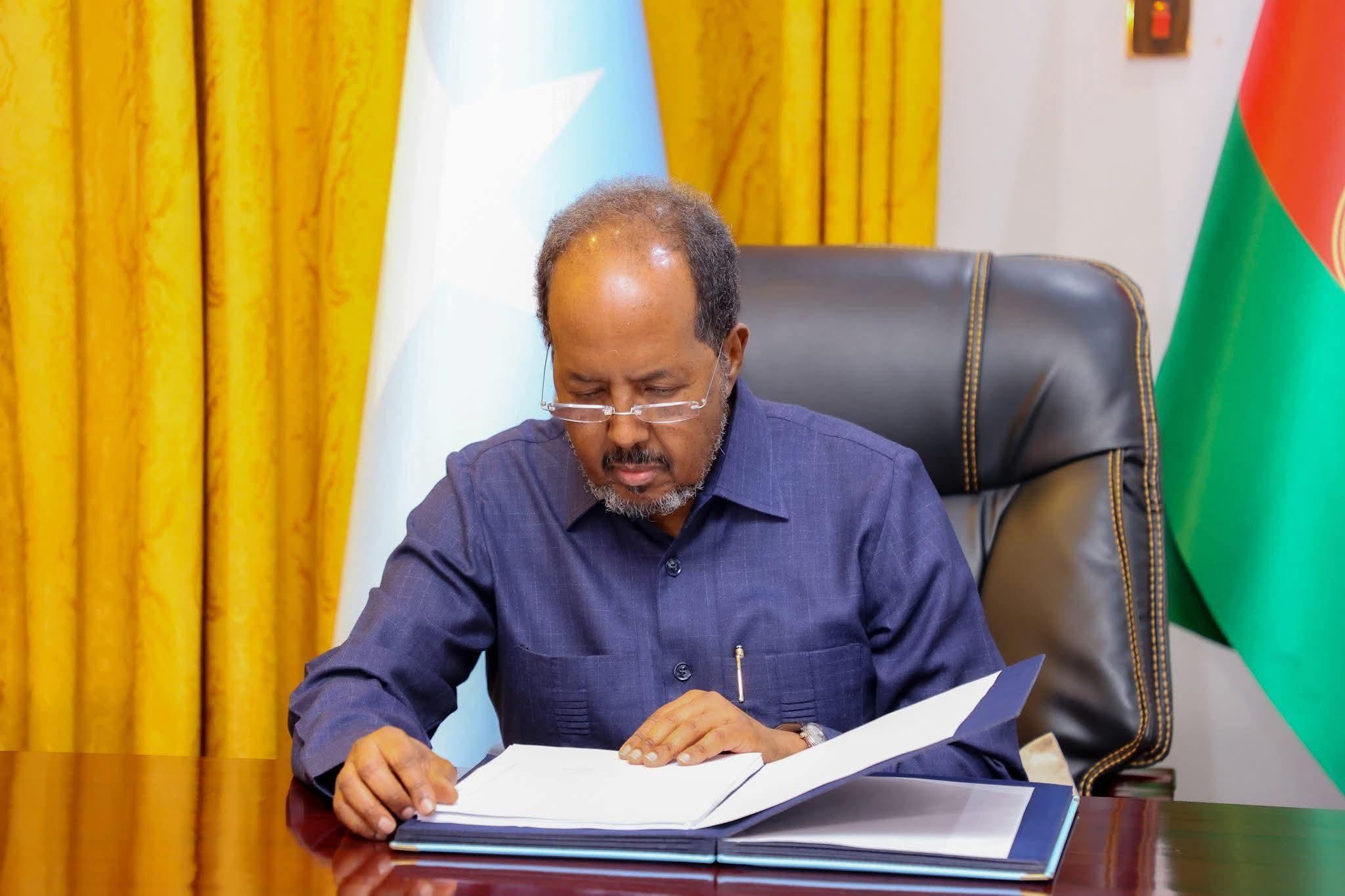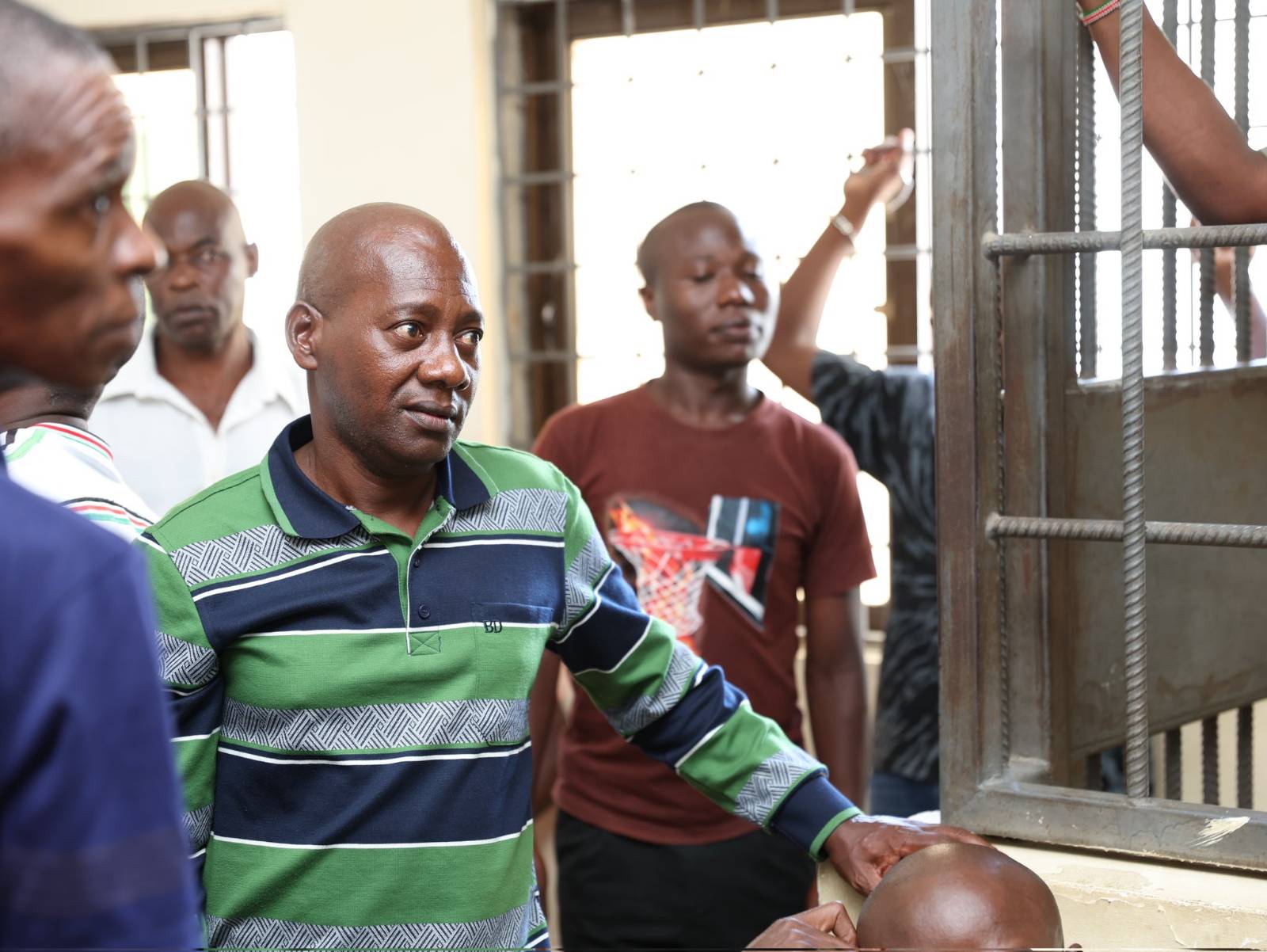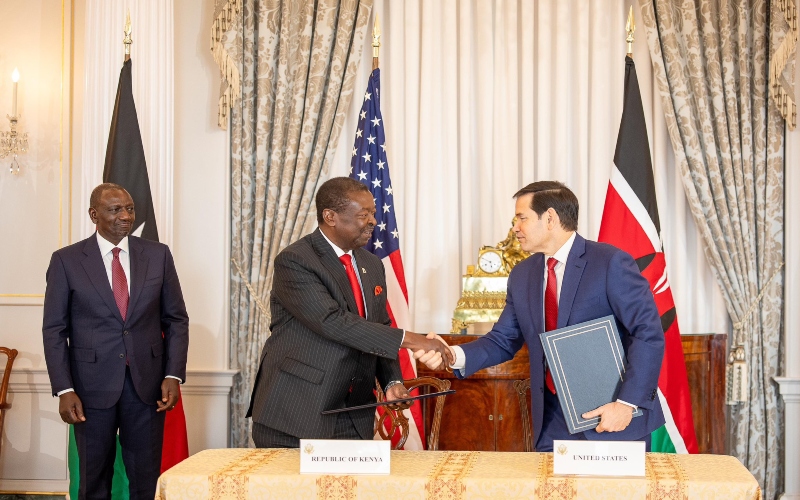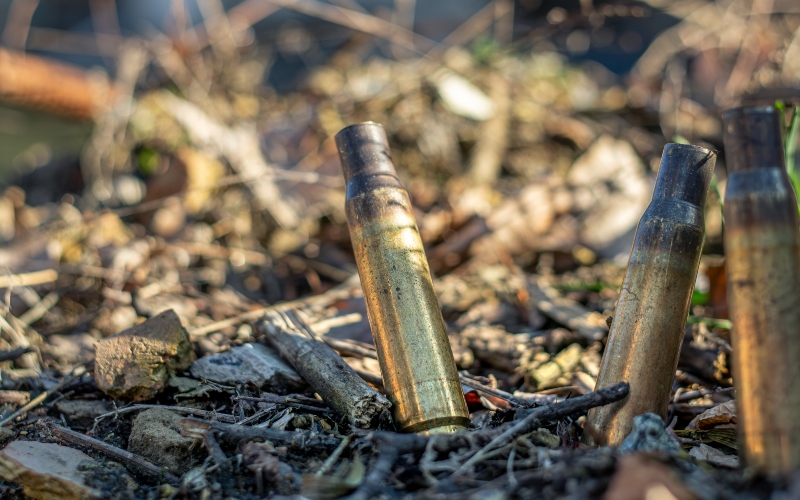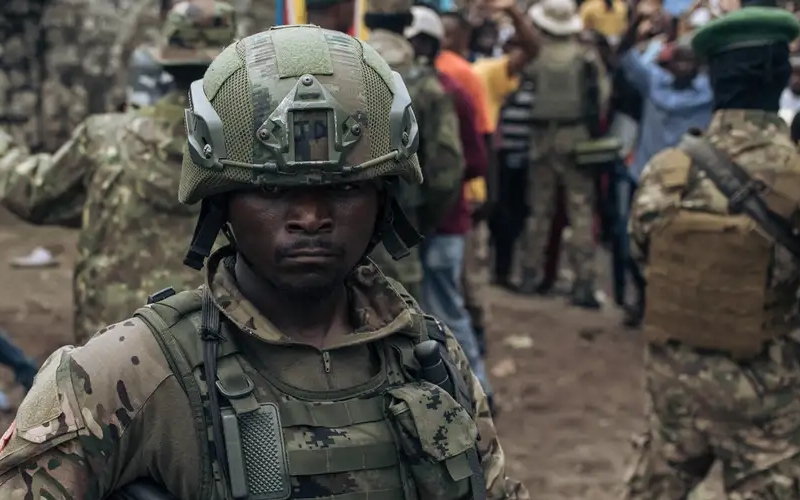AU expresses concerns over worsening humanitarian situation in North Darfur
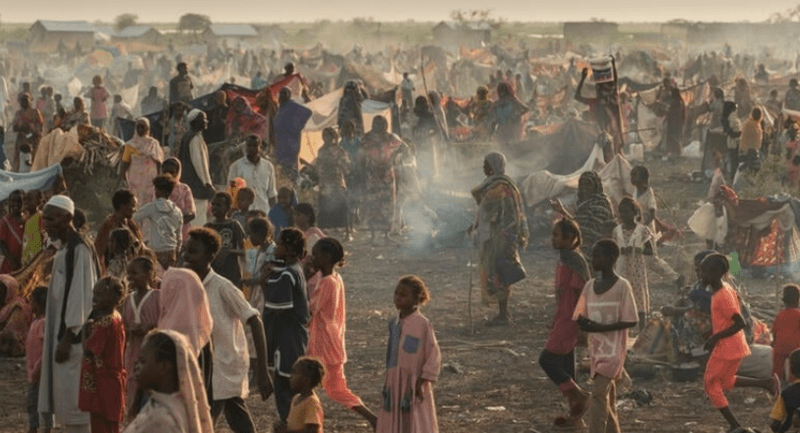
Faki condemned external interference and reiterated AU's demand for 'foreign countries' to cease the supply of weapons to the belligerents.
The African Union (AU) has voiced grave concerns over the deteriorating humanitarian and security conditions in El Fasher in North Darfur, Sudan.
Chairperson of the AU Commission, Moussa Faki Mahamat, warned on Friday that there was a substantial concentration of fighters and weaponry near El Fasher, highlighting the risk it poses to millions of civilians.
More To Read
- UN warns human rights face growing threats worldwide in 2025 as funding for activists falls
- Sudanese herders struggle to safeguard livestock amid devastating war
- Sudan puts Russian Red Sea naval base plans on hold to focus on domestic crisis
- Sudan: Kordofan cannot become ‘another El Fasher,’ UN rights chief warns
- Sudan’s crisis deepens with communities trapped in ‘siege conditions’
- Somalia welcomes first group of Sudanese students under new scholarship programme
He further noted that this escalation worsens the already complex peace process.
"The AU Commission calls on all warring parties to immediately cease hostilities, return to the local truce in El Fasher, and begin implementing the May 2023 Jeddah ceasefire agreement," the statement said.
"Unconditional resumption of talks is necessary to achieve a lasting and comprehensive cessation of hostilities,” Mahamat added.
He also condemned external interference and reiterated the African Union's demand for 'foreign countries' to cease the supply of weapons to the belligerents, which was a clear violation of legally binding UN Security Council sanctions."
Faki further urged all Sudanese stakeholders to support the AU High-Level Panel on Sudan, which is working to facilitate a preparatory process for an inclusive Sudanese political dialogue in the near future.
Echoing the AU's concerns, the UN Office for the Coordination of Humanitarian Affairs (UNOCHA) emphasised on Friday that movements of troops by opposing armed groups in western Sudan are escalating tensions.
This escalation is impeding aid delivery to thousands and exacerbating the dire situation for civilians.
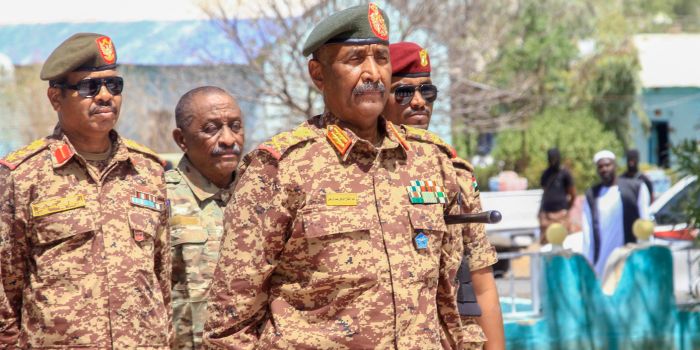 Sudan's army chief, Abdel Fattah al-Burhan, visits casualties receiving treatment at a hospital in the southeastern Gedaref state on April 10, 2024, the first day of Eid ul-Fitr. (Photo: AFP)
Sudan's army chief, Abdel Fattah al-Burhan, visits casualties receiving treatment at a hospital in the southeastern Gedaref state on April 10, 2024, the first day of Eid ul-Fitr. (Photo: AFP)
El Fasher, the capital of North Darfur, has emerged as a focal point for intense clashes between the Sudanese Armed Forces (SAF) and the paramilitary Rapid Support Forces (RSF) since the war erupted on April 15, 2023.
According to a recent report from the United Nations Office for the Coordination of Humanitarian Affairs (UNOCHA), the conflict has resulted in over 14,700 fatalities and displaced an estimated 8.2 million people within and beyond Sudan's borders.
The paramilitary Rapid Support Forces and its allies are said to be ransacking and capturing the Darfur region in the second year of its war against the military.
Rapid Support Forces
The paramilitary group emerged from the feared militias known as the Janjaweed that terrorised Darfur in the 2000s.
Janjaweed refers to the armed groups of the Arabs of Darfur and Kordofan in Western Sudan.
According to Human Rights Watch, the Rapid Support Forces committed war crimes in Darfur in 2014 and 2015, when civilians were displaced, assaulted, looted, and killed.
The recent killings of innocent civilians in Darfur are also believed to have been committed by the Rapid Support Forces, commanded by Dagalo, who is a former deputy of the Transitional Authority Council in Sudan.
The worst atrocities have been documented in the El Geneina suburb of Ardamata, where a new massacre of people from the Masalit ethnic group occurred.
According to initial tallies by the Roots Organisation for Human Rights, over 1,300 people, including children and the elderly, were killed after the RSF took control of the army division in the area.
However, last year, Amnesty International blamed both the paramilitary and military wings for committing war crimes in the country.
“Our report, Death Came to Our Home, looks at the deliberate targeting of civilians as well as civilians who have been caught in the crossfire. It also documents cases of sexual violence. It shows how serious the war crimes are that are being committed by the rapid support forces and the Sudanese armed forces in the context of the current conflict, where we see untold death and destruction," Amnesty warned.
Top Stories Today

